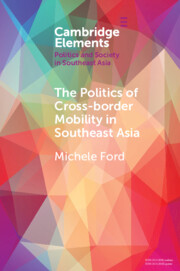Within and across Southeast Asian national borders, there has been a growing circulation of labour, capital, people, and goods. Meanwhile, urbanisation, agrarian changes, and liberal economic restructuring have been drawing a large section of the rural population into mobile economies and trade networks. This special issue explores the linkage between mobility and the growing precaritisation of labour resulting from neoliberalised development policies, nationalist citizenship regimes, and discourses, and arbitrary state power. Arguably, the consequent insecurity and uncertainty have profound implications for the social and economic life of migrant labourers. Although these conditions engender dangers and risks, they also hold possibilities for crafting translocal livelihoods and social relations. In this introduction, we investigate the diverse trajectories of labour migration in Southeast Asia through a critical discussion on the concept of ‘precarity’ that underscores the resilience of labour migrants despite the precarious conditions of their lives. The special issue suggests that, while precarious labour has long been part of regimes of control and exploitation in the region, precarity today is shaped by the blurry boundaries between the legal and the illegal, between local and global lives, and between different worlds of belonging.
